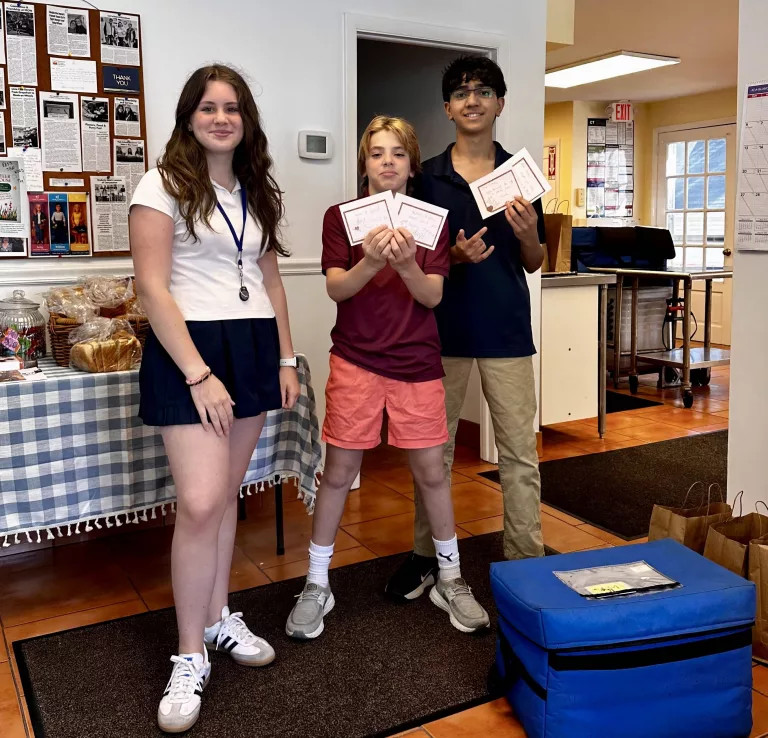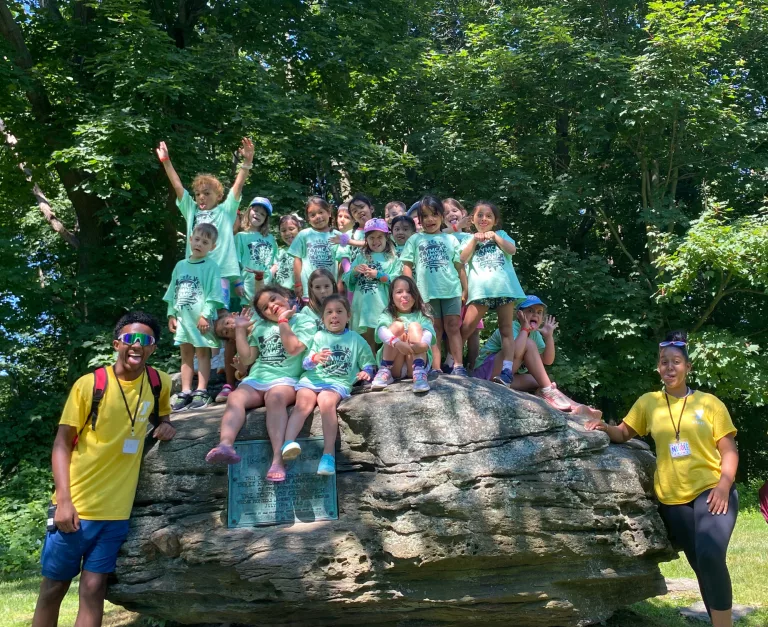By The Rev. Marek Zabriskie
One of the greatest hymns of the twentieth century is a hymn composed by the composer Ralph Vaughan Williams called “For All the Saints.” He called the tune sine non nominee – “without a name.”
The hymn was written for to celebrate All Saints Day, November 1, where the Church stops to honor famous saints and forgotten saints, highly regarded saints and those whose actions are known to God alone. All Saints Day reminds us that all human beings discover who they are and what they are when they give themselves in service to others.
The saints include disciples like James and John, the sons of Zebedee. Like all saints, they were works in progress. Remember how James and John wanted to call down lightning to kill those who wouldn’t follow Jesus. How loving was that? Jesus nicknamed them “the thunder boys.” He put up with flawed people and shaped them into something much better.
The saints include a Roman soldier – perhaps the first conscientious objector in history – a man named Martin. He is best remembered for taking his sword and cutting his military tunic in half in order to clothe a poor, naked beggar who was freezing to death. Many churches around the world have been named after him, including St. Martin’s-in-the-Field in London, which is famous for its ministry to the homeless.
There is Saint Francis – the Patron Saint of Animals and the Environment, whom the Italian artist Giotto depicted in the frescoes on the walls of the basilica in Assisi preaching to the birds. And there is Saint Joan of Arc, who preferred to wear the armor of a warrior to the petticoat of a dame as she led men twice her size into battle.
And the saints include people like you and me when offer our time and money extravagantly to God. If you have ever served meals to the homeless, visited someone in prison, tutored a child or mentored a teenager, taught Sunday school, sang in a choir, brought Communion to a shut-in or served on the governing board of your church, you, too, are a saint.
And it’s not just churchy stuff that gives us our halos. If you’ve taken food to a new neighbor or accompanied someone who has suffered a loss, written notes of condolence or smiled at strangers, or done random acts of kindness, you, too, are a saint. You are part of this great procession. The church exists only because of saints like you and to form saints like you.
To be a saint does not mean that we are perfect. The word “saint” is always used in the New Testament to address all members of the church. St. Paul starts one of his letters, “To all the saints who are at Philippi,” and then goes on to coach them about how to live the Christian life. Hence, we must re-imagine what it means to be a saint and must not fear to include ourselves.
According to Roman Catholic tradition there are two things necessary for sainthood – proof of a good and pious life, confirmed by at least three miracles after death. This is out of reach of most of us. Episcopalians, however, don’t measure sainthood by confirmed miracles but rather by accounts of holy living – lives that have positively impacted other lives.
Soren Kierkegaard, the nineteenth-century theologian, said that a saint is someone whose life manages to be “a cranny through which the infinite peeps.” He referred to saints as “knights of faith,” but he said that they are not easy to recognize, because they look just like the rest of us.
Each year on All Saints’ Sunday, we read the words of the Beatitudes, found in Jesus’ famous Sermon on the Mount. “Blessed are the poor in spirit.” “Blessed are those who mourn, who are meek, who are peacemakers, who are persecuted for righteousness sake.”
Preacher Barbara Brown Taylor said that we read these words like “paragraphs of a job description and decide that it is futile even to apply.” But God does charge us to be virtuous, to live for others, and to aspire to holy living. We are called to be a saint with a small “s.”
That is why the Episcopal Church always offers baptism on All Saints Day to remind us that sainthood is within the reach of every human being. Mathew closes his gospel with Jesus’ words, “Go and makes disciples.” Make saints. That is the Church’s task.
And we take unsuspecting babies and mark them as Christ’s own forever. Thus, at baptism, we are given our halos and are made saints forever in the eyes of God. We become Jesus’ ambassadors, and as we embrace this high calling, we discover our deepest joy.
Frederick Buechner writes, “In his holy flirtation with the world God occasionally drops a handkerchief. These handkerchiefs are called saints.” This suggests that saints are more the work of God than something that we set out to achieve on our own. Saints are ordinary people through whom God does extraordinary things. Thus, none of us should quickly claim that sainthood is beyond our grasp.
I think of Osceola McCarty of Hattiesburg, Mississippi. Almost no one knew that she was a saint. She did not look like someone with a shiny halo. She was a laundress, an old black woman who never married. In fact, she dropped out of school in the sixth grade and spent her life washing other people’s clothes for a living.
That was the year that her maiden aunt came out of the hospital unable to walk and moved in with McCarty’s family. McCarty stayed home to help care for her aunt and grandmother. Soon, she felt that she was too big and too far behind to return to school.
For the next 75 years, she scrubbed clothes on a washboard and boiled the whites in a big black pot and hung the clothes out to dry in her backyard. She began her day when the sun rose and ended when it set. No one knew who she was until she turned 87 years old.
That was the year that she gave $150,000 – her life savings – to the University of Southern Mississippi for black scholarships. Reporters and journalists flocked to cover this unknown saint. The question that McCarty got asked more than any other question is why didn’t she spend the money on herself. She replied with a wry smile, “I am spending it on myself.”
On All Saints Day we make the bold claim that all of us belong to the great Communion of Saints. These wondrous people are our relatives. We belong to one big family, united by the blood that Jesus shed for us.
And we celebrate our newest saints through baptism as they become part of this mystical body of love. Once you and I are baptized, we are in, whether we give ourselves a high or a low score for what we have contributed to the world.
We don’t have to have become famous, to have changed the course of history, or to have an Olympic level of faith. All that we need to do is to be that unique person that God created us to be. And we don’t have to do it alone. Countless Christians will cheer us on as we as we live the Christian faith together like God’s handkerchiefs dropped from heaven.
The Rev. Marek P. Zabriskie is the Rector of Christ Church Greenwich, which was founded in 1749 and is one of the largest Episcopal Churches in the northeast.





